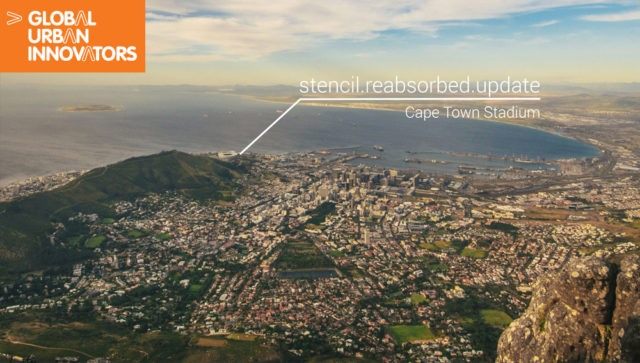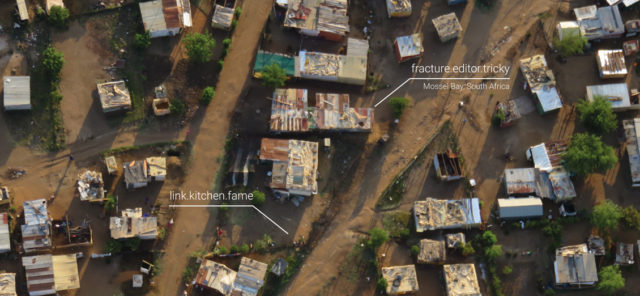
The 3 Word Innovation Addressing a Global Challenge
October 12, 2016 — Blog
An address is something we take for granted. Yet, more than half of the world’s city dwellers lack a reliable addressing system. No house numbers or street names. No access to civic services. For those who have an address, it is hard to imagine how much is out of reach for those who do not.

Unaddressed residents cannot open bank accounts. They struggle to access basic utilities. Some are even ineligible to vote. In developed nations, poor addressing costs the economy billions. Elsewhere, it hampers social and economic growth, and can, ultimately, cost lives – through a direct lack of access to sanitation, clean water or essential aid, or as a long term result of being invisible to the State.
And it’s not just about the poor addressing of homes and buildings. Zoom in and consider what else is missing in the maps and directions we use every day. We are unable to define the precise location of any point in the city which lacks a street address – a specific park entrance, a piece of street furniture, or even a vehicle in distress. Effectively communicating these important details still remains a serious challenge.
3 Words to Address the World
what3words takes a new approach to global addressing that better reflects the reality for people. It has divided the world into trillions of 3 x 3 metre squares and assigned each one a unique three word address.
Using words makes it significantly easier to refer to a specific point on the globe. It is as accurate as GPS but far more memorable than complex number and letter combinations. Most importantly, it means everyone and everywhere now has an address.
A Scalable Solution
When rezoning and regenerating neighbourhoods, many cities are forced to bend existing postal coding systems, to accommodate change in ways that don’t always make sense. As cities grow, three word addresses can keep up with demand. Everywhere on the planet has already been allocated a unique, fixed three word address, available in any one of 12 languages. As city limits expand, the new buildings already have a simple and reliable address awaiting them.
Running a Smart City
It’s not only urban residents that can benefit from a three word address. The migration of people into the city is also putting strain on municipal operations.
Identifying traffic lights, electricity sub-stations or telephone exchanges – and giving each one a three word address – will help to keep cities in control of their assets. For example, one company in Botswana currently uses the service to keep track of solar powered lighting units and effectively manage future maintenance cycles.
Emergency services can also be easily discovered by their three word address. Moreover, the address will identify the exact location of a hospital or police station entrance, not just the general site of the building. Fire departments in Colorado have gone one step further, tagging fire hydrants in the Denver metro area with their three word address, to quickly locate the nearest water supply.

3 Words on Wheels
Mobility is a burning topic in urban development. As cities grow, so will the number of journeys people take through them. More trips means more people getting lost as travellers search for the right entrance or endlessly chase imperfect SatNav directions.
Navigating the city also becomes easier when you know a precise destination. By integrating three word addresses into navigation apps, people can use the system to pinpoint the location, down to a specific 3 x 3 metre square, about the same area covered by a large car.
Imagine driving through a city and simply telling your navigation system the three word address for your destination. Rather than trying to remember the number of a building or shopping centre, you can use a three word address to identify a specific entrance to a building or the way into a parking lot. You continue driving with 100 percent certainty you will reach your intended destination – meaning less last-minute missed turns, and fewer cars circling the block.
Three word addresses can even improve taxi services – something that what3words is already doing with a bike taxi firm in India. Passengers arrange a specific three word pick up point and then take the taxi to the three word address where they would like to be dropped off. The result? Safer journeys for passengers and time saved for the company.
A 3 Word Future
Introducing a three word address is an innovative option, but it’s one with a human-friendly approach. It offers an easy-to-implement, robust and scalable way to address any point on the planet. The best part? It is a solution that is already being adopted today.
Three word addresses are already being used in over 170 countries by people, business, governments and NGOs. From a new postal addressing service for Mongolia, to optimising deliveries in the Middle East, to addressing the favelas of Rio de Janeiro.
With a fresh approach to this universal and yet underappreciated issue, what3words aims to resolve the issue of global addressing once and for all. By combining a smart use of technology with an intuitive reappraisal of human behaviour, we strive to provide addresses to the people and places that need them most. And in doing so, we’ll create a better language of location for tomorrow’s cities.